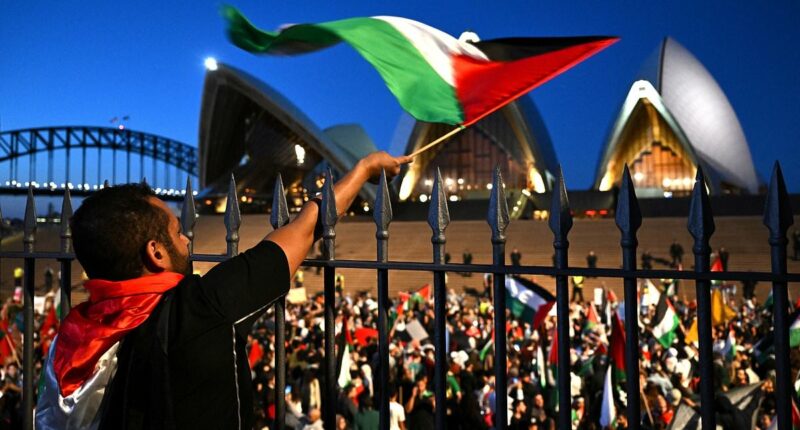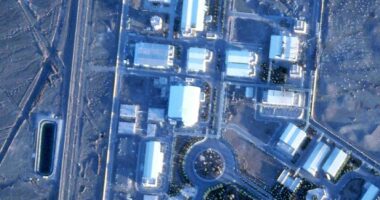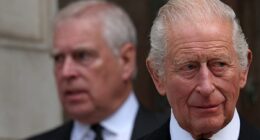Share this @internewscast.com
On the second anniversary of the October 7 invasion of Israel by Hamas militants, Australia should be marking a day of quiet remembrance of the atrocities.
Instead, pro-Palestinian activists chose today to organise rallies at highly charged locations, glorifying their ‘martyrs’.
It’s an act of calculated indifference to the pain of the families of the Israeli hostages – and it underlines why timing matters in politics.
Albo has warned that it’s ‘not a day for demonstrations’ – but he can’t be surprised they are happening.
Just weeks earlier his government recognised Palestine as a state, despite dozens of hostages still being held underground and Hamas refusing to disarm.
That decision didn’t just misread the moral moment, it also helped create the permission structures for performative protests on a day that should have been reserved for reflection and condemnation.
Labor’s early move towards recognition can only have emboldened protestors feeling relaxed and comfortable about timing their rallies with insensitivity.
After all, the government agrees with them that Palestine should be recognised despite the ongoing suffering of hostages and Hamas continuing to fight.

Pro-Palestinian protests have been regular events across Australia, but to hold such rallies on the anniversary of the Hamas invasion of Israel is provocative and the government should have seen it coming.

Australia’s unfettered recognition of the state of Palestine was unwise and owes more to domestic political calculations than to principle.
The core error was timing.
Recognition of Palestine is one of the few pieces of leverage a middle power has. Great powers, too, for that matter, which is why the US hasn’t gone down the recognition path just yet.
Doing so before basic preconditions are met rewards the wrong parties, most significantly Hamas. It signals that symbolic gains are available without changing their behaviour.
Labor put sentiment ahead of strategy, in turn showing a disregard for Australia’s Jewish population on this day of days.
And that’s the kind view. The unkind conclusion is that the PM was being deeply strategic by playing up to the pro-Palestine movement and the voting power of Arab and Muslim populations in key Labor seats. The cynical calculation is that Jewish votes are fewer in number, not reliably Labor, and simply less important.
Effective peace processes don’t start with the handing out of prizes. They involve steps that lead to a measurable shift on the ground. That’s what the current US plan is more likely to achieve: staged hostage releases tied to a ceasefire, also an IDF withdrawal from Gaza and a transition to a non-Hamas administration, as well as a disarmed Hamas.
This final condition remains deeply contested within the ranks of Hamas and far from certain of being adhered to, which is clear evidence that early recognition was a dangerously pre-emptive act.
Donald Trump’s art of the deal is now the best hope of achieving peace.
You can dislike the messenger and still recognise the logic of his approach. A leverage-driven attempt at peace. It still might not work, but it’s a calculated gamble which would make real peace more likely to hold.

The Albanese government’s unconditional recognition of Palestinian statehood gave no incentive for it to moderate its violent actions and rhetoric.

The US-brokered peace deal for Gaza may not work, but putting contingencies on Palestinian recognition was the only way to make an agreement long-lasting.
In contrast, Australia along with the UK, France and Canada offered recognition up front and hoped momentum would simply follow.
What actually followed was applause from Hamas, no shift in hostage negotiations, condemnation by an increasingly isolated Israel (a democratic state no less) and planned protests on the day of a massacre that implicitly celebrate what occurred as a precondition to Palestinian recognition.
What a mess.
Even New Zealand had the prudence to hold back providing recognition. It backs a two state solution but refused to rubber-stamp statehood while Hamas still retains coercive power and the war still rages.
The PM’s October 7 anniversary statement condemned Hamas and spoke movingly about Jewish grief. There were fine words but nothing more.
Recognition in that context muddies the moral message. It is precisely why this week’s rallies feel so cold-hearted.
If Albo thought his diplomatic actions would stop the protests being timed this way, he was foolish. If he knew they would go ahead anyway, he missed an opportunity to hold the line in lieu of adequate concessions in the aftermath.
If peace does come soon, and it may do so courtesy of Trump’s timely intervention, it will only be because a hard-nosed framework preceded US recognition. If anything the fragmentation of western allies has made the task that much harder.
Albo has contributed to that. That’s his legacy on this two year anniversary.








